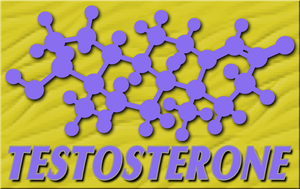Introduction
Hypopituitarism, a condition characterized by the decreased production of one or more of the pituitary hormones, can significantly affect the quality of life of those affected. In the United States, this condition poses unique challenges to American males, influencing their daily activities and emotional well-being. This article delves into a recent survey-based study that assesses how hypopituitarism impacts the lives of American men, offering insights into their experiences and the broader implications for healthcare management.
Study Methodology
The study involved a comprehensive survey distributed among American males diagnosed with hypopituitarism. Participants were asked to report on various aspects of their daily lives, including physical health, emotional well-being, and social interactions. The survey was designed to capture both quantitative data, such as symptom severity and frequency, and qualitative data, such as personal narratives and emotional impacts.
Physical Health and Daily Activities
The survey results highlighted a significant impact of hypopituitarism on the physical health of American males. Many respondents reported fatigue, muscle weakness, and decreased libido, which directly affected their ability to perform daily tasks. For instance, a notable percentage of participants mentioned difficulties in maintaining regular employment due to these symptoms. The study also found that hormone replacement therapy, while beneficial, did not fully alleviate these challenges for all participants, indicating a need for more personalized treatment approaches.
Emotional Well-being and Mental Health
Emotional well-being emerged as a critical concern among the surveyed population. A substantial number of American males with hypopituitarism reported feelings of depression and anxiety, which they attributed to their condition. The emotional toll was particularly evident in younger respondents, who expressed frustration over the limitations imposed by hypopituitarism on their social and professional lives. The study underscores the importance of integrating mental health support into the treatment plans for these individuals.
Social Interactions and Relationships
The impact of hypopituitarism extended beyond physical and emotional health to affect social interactions and relationships. Many participants reported a decline in their social activities, with some feeling isolated due to their condition. The survey revealed that relationships, both familial and romantic, were strained as a result of the symptoms and the emotional burden of hypopituitarism. This finding suggests that healthcare providers should consider the social dimensions of the condition when developing care plans.
Implications for Healthcare Management
The findings of this survey have significant implications for the management of hypopituitarism in American males. Healthcare providers need to adopt a holistic approach that addresses not only the physical symptoms but also the emotional and social challenges faced by patients. This may involve multidisciplinary teams that include endocrinologists, mental health professionals, and social workers. Additionally, there is a need for increased awareness and education about hypopituitarism to improve early diagnosis and treatment outcomes.
Conclusion
The survey-based study on American males with hypopituitarism provides valuable insights into the multifaceted impact of the condition on quality of life. By highlighting the challenges in physical health, emotional well-being, and social interactions, the study calls for a more comprehensive approach to managing hypopituitarism. As the medical community continues to explore effective treatments and support systems, the voices of those affected by this condition will be crucial in shaping a more responsive and empathetic healthcare landscape.
Contact Us Today For A Free Consultation

- What is Hypopituitarism [Last Updated On: March 16th, 2025] [Originally Added On: February 18th, 2021]
- Is There Such a Thing as Too Much HGH? [Last Updated On: March 16th, 2025] [Originally Added On: August 22nd, 2023]
- Unveiling the Cardiovascular Implications of Hypopituitarism in American Males [Last Updated On: March 1st, 2025] [Originally Added On: March 1st, 2025]
- Hypopituitarism in American Men: Impacts and Management Strategies [Last Updated On: March 10th, 2025] [Originally Added On: March 10th, 2025]
- Hypopituitarism and Metabolic Syndrome: Unraveling the Connection in American Males [Last Updated On: March 16th, 2025] [Originally Added On: March 16th, 2025]
- Unveiling the Cardiovascular Risks: The Link Between Hypopituitarism and Heart Disease in American Males [Last Updated On: March 16th, 2025] [Originally Added On: March 16th, 2025]
- Unraveling the Connection: Hypopituitarism and Uterine Fibroids in American Males [Last Updated On: March 16th, 2025] [Originally Added On: March 16th, 2025]
- Exploring Hypopituitarism's Impact on Vaginal Health and the Female Reproductive System [Last Updated On: March 16th, 2025] [Originally Added On: March 16th, 2025]
- Unraveling the Hormonal Link: Hypopituitarism and Breast Cancer in American Males [Last Updated On: March 16th, 2025] [Originally Added On: March 16th, 2025]
- Hypopituitarism and Autoimmune Disorders: Critical Insights for American Males [Last Updated On: March 16th, 2025] [Originally Added On: March 16th, 2025]
- Hypopituitarism and Obesity in American Males: Hormonal Impacts and Management Strategies [Last Updated On: March 17th, 2025] [Originally Added On: March 17th, 2025]
- Hypopituitarism in American Males: Hormonal Imbalances and Sleep Disorder Connections [Last Updated On: March 18th, 2025] [Originally Added On: March 18th, 2025]
- Surgical Interventions for Hypopituitarism and Pituitary Tumors in American Males [Last Updated On: March 19th, 2025] [Originally Added On: March 19th, 2025]
- Hypopituitarism's Impact on Mental Health in American Males: Depression, Anxiety, and Treatment [Last Updated On: March 19th, 2025] [Originally Added On: March 19th, 2025]
- Multidisciplinary Care Essential for Managing Hypopituitarism in American Males [Last Updated On: March 20th, 2025] [Originally Added On: March 20th, 2025]
- Hypopituitarism in American Males: Cancer Risks and Monitoring Strategies [Last Updated On: March 21st, 2025] [Originally Added On: March 21st, 2025]
- Hypopituitarism and Anemia in American Males: The Critical Role of EPO Deficiency [Last Updated On: March 21st, 2025] [Originally Added On: March 21st, 2025]
- Hypopituitarism and Male Hair Loss: Hormonal Mechanisms and Treatment Strategies [Last Updated On: March 21st, 2025] [Originally Added On: March 21st, 2025]
- Hypopituitarism's Impact on Kidney Function in American Males: Monitoring and Management [Last Updated On: March 21st, 2025] [Originally Added On: March 21st, 2025]
- Hypopituitarism's Impact on Immune Function in American Men: Diagnosis, Treatment, and Management [Last Updated On: March 21st, 2025] [Originally Added On: March 21st, 2025]
- Hypopituitarism in American Males: Cognitive Impacts and Management Strategies [Last Updated On: March 22nd, 2025] [Originally Added On: March 22nd, 2025]
- Hypopituitarism in American Males: Impact on Eye Health and Visual Impairments [Last Updated On: March 22nd, 2025] [Originally Added On: March 22nd, 2025]
- Hypopituitarism in Aging American Males: Impact, Diagnosis, and Management Strategies [Last Updated On: March 22nd, 2025] [Originally Added On: March 22nd, 2025]
- Hypopituitarism's Impact on Liver Health in American Males: Hormonal Deficiencies and Management [Last Updated On: March 22nd, 2025] [Originally Added On: March 22nd, 2025]
- Hypopituitarism's Impact on Joint Health in American Males: Diagnosis and Management [Last Updated On: March 22nd, 2025] [Originally Added On: March 22nd, 2025]
- Hypopituitarism's Impact on GI Health in American Males: Digestion and Nutrient Absorption [Last Updated On: March 23rd, 2025] [Originally Added On: March 23rd, 2025]
- Hypopituitarism's Impact on Skin Health in American Males: Symptoms and Management [Last Updated On: March 23rd, 2025] [Originally Added On: March 23rd, 2025]
- Hypopituitarism and Seizure Disorders in American Males: Clinical Insights and Management [Last Updated On: March 23rd, 2025] [Originally Added On: March 23rd, 2025]
- Hypopituitarism and Migraines: Hormonal Links and Management Strategies for American Men [Last Updated On: March 23rd, 2025] [Originally Added On: March 23rd, 2025]
- Hypopituitarism and Hypertension: Impact on Blood Pressure in American Males [Last Updated On: March 23rd, 2025] [Originally Added On: March 23rd, 2025]
- Hypopituitarism's Link to Gout and Uric Acid in American Males: A Comprehensive Analysis [Last Updated On: March 23rd, 2025] [Originally Added On: March 23rd, 2025]
- Hypopituitarism's Impact on Muscle Strength in American Males: Management and Insights [Last Updated On: March 24th, 2025] [Originally Added On: March 24th, 2025]
- Autoimmune Link: Hypopituitarism and Rheumatoid Arthritis in American Males [Last Updated On: March 24th, 2025] [Originally Added On: March 24th, 2025]
- Exploring the Link Between Hypopituitarism and MS in American Males [Last Updated On: March 24th, 2025] [Originally Added On: March 24th, 2025]
- Autoimmune Link Between Hypopituitarism and Celiac Disease in American Males [Last Updated On: March 24th, 2025] [Originally Added On: March 24th, 2025]
- Hypopituitarism and Diabetes: Impact on Glucose Metabolism in American Males [Last Updated On: March 25th, 2025] [Originally Added On: March 25th, 2025]
- Hypopituitarism's Impact on Kidney Health in American Males: Monitoring and Management [Last Updated On: March 25th, 2025] [Originally Added On: March 25th, 2025]
- Hypopituitarism and Hearing Loss: Exploring Links and Implications for American Males [Last Updated On: March 25th, 2025] [Originally Added On: March 25th, 2025]
- Hypopituitarism in American Males: Cardiovascular Risks and Management Strategies [Last Updated On: March 25th, 2025] [Originally Added On: March 25th, 2025]
- Hypopituitarism's Impact on Asthma in American Males: Hormonal Insights and Management [Last Updated On: March 25th, 2025] [Originally Added On: March 25th, 2025]
- Hypopituitarism and Allergies: Hormonal Impacts on Immune Response in American Men [Last Updated On: March 26th, 2025] [Originally Added On: March 26th, 2025]
- Hypopituitarism's Role in Accelerating Parkinson's Disease in American Males [Last Updated On: March 26th, 2025] [Originally Added On: March 26th, 2025]
- Hypopituitarism and Liver Cirrhosis: Impacts and Management in American Males [Last Updated On: March 26th, 2025] [Originally Added On: March 26th, 2025]
- Hypopituitarism and CFS Overlap in American Males: Symptoms, Mechanisms, and Clinical Insights [Last Updated On: March 26th, 2025] [Originally Added On: March 26th, 2025]
- Hypopituitarism and Fibromyalgia: Overlapping Symptoms and Impact on American Males [Last Updated On: March 26th, 2025] [Originally Added On: March 26th, 2025]
- Hypopituitarism, Hormonal Imbalances, and Alzheimer's Risk in American Males [Last Updated On: March 26th, 2025] [Originally Added On: March 26th, 2025]
- Hypopituitarism and Sjögren's Syndrome: Effects on Exocrine Glands in American Males [Last Updated On: March 26th, 2025] [Originally Added On: March 26th, 2025]
- Hypopituitarism and Dyslipidemia: Impacts on American Males' Health and Management Strategies [Last Updated On: March 26th, 2025] [Originally Added On: March 26th, 2025]
- Hypopituitarism's Impact on Prostate Cancer in American Males: Diagnosis and Management [Last Updated On: March 26th, 2025] [Originally Added On: March 26th, 2025]
- Exploring the Link Between Hypopituitarism and Lupus in American Males [Last Updated On: March 27th, 2025] [Originally Added On: March 27th, 2025]
- Hypopituitarism and Pituitary Cancer: Early Detection and Management for American Males [Last Updated On: March 27th, 2025] [Originally Added On: March 27th, 2025]
- Hypopituitarism in American Males: Monitoring Hormones to Reduce Stroke Risk [Last Updated On: March 27th, 2025] [Originally Added On: March 27th, 2025]
- Hypopituitarism and IBD: Gastrointestinal Links and Impacts on American Males [Last Updated On: March 27th, 2025] [Originally Added On: March 27th, 2025]
- Hypopituitarism and Adrenal Cancer: Endocrine Links in American Males [Last Updated On: March 27th, 2025] [Originally Added On: March 27th, 2025]
- Hypopituitarism and Osteoarthritis: Impact on Joint Health in American Males [Last Updated On: March 28th, 2025] [Originally Added On: March 28th, 2025]
- Hypopituitarism and Gallbladder Disease: Exploring Links in American Males [Last Updated On: March 29th, 2025] [Originally Added On: March 29th, 2025]
- Hypopituitarism's Impact on Pancreatitis: Risks and Management for American Males [Last Updated On: March 29th, 2025] [Originally Added On: March 29th, 2025]
- Hypopituitarism and Breast Cancer Link in American Males: Hormonal Insights and Clinical Implications [Last Updated On: March 30th, 2025] [Originally Added On: March 30th, 2025]
- Hormonal Imbalances in Hypopituitarism and Thyroid Cancer: Impacts on American Males [Last Updated On: March 30th, 2025] [Originally Added On: March 30th, 2025]
- Hypopituitarism and Testicular Cancer: Impacts and Fertility Preservation Strategies [Last Updated On: March 31st, 2025] [Originally Added On: March 31st, 2025]
- Hypopituitarism and Ovarian Cancer: Exploring Hormonal Links in American Males [Last Updated On: March 31st, 2025] [Originally Added On: March 31st, 2025]
- Hypopituitarism in American Males: Hormonal Imbalances and Benign Tumor Risks [Last Updated On: April 4th, 2025] [Originally Added On: April 4th, 2025]
- Hypopituitarism and PCOS: Symptoms, Diagnosis, and Management Strategies [Last Updated On: April 4th, 2025] [Originally Added On: April 4th, 2025]
- Hormonal Links Between Hypopituitarism and Endometriosis in American Males Explored [Last Updated On: April 5th, 2025] [Originally Added On: April 5th, 2025]
- Hypopituitarism and Erectile Dysfunction: Hormonal Links and Holistic Management in American Males [Last Updated On: April 6th, 2025] [Originally Added On: April 6th, 2025]
- Hypopituitarism: Effects on Male Reproductive and Penile Health [Last Updated On: April 8th, 2025] [Originally Added On: April 8th, 2025]
- Hypopituitarism, Hormonal Imbalance, and Cervical Cancer Risk in Men [Last Updated On: April 8th, 2025] [Originally Added On: April 8th, 2025]
- Hypopituitarism's Impact on Female Reproductive and Vaginal Health: Diagnosis and Management [Last Updated On: April 9th, 2025] [Originally Added On: April 9th, 2025]
- Hypopituitarism and Premature Ejaculation: Exploring Hormonal Links in American Males [Last Updated On: April 10th, 2025] [Originally Added On: April 10th, 2025]
- Hypopituitarism's Impact on Miscarriage Risk and Male Fertility in America [Last Updated On: April 10th, 2025] [Originally Added On: April 10th, 2025]
- Hypopituitarism and Preeclampsia in Pregnancy: Monitoring and Management Strategies [Last Updated On: April 10th, 2025] [Originally Added On: April 10th, 2025]
- Hypopituitarism and Ectopic Pregnancy: Impacts and Management in Women's Health [Last Updated On: April 11th, 2025] [Originally Added On: April 11th, 2025]
- Hypopituitarism and Male Infertility: Causes, Diagnosis, and Treatment Options [Last Updated On: April 11th, 2025] [Originally Added On: April 11th, 2025]
- Hypopituitarism and Gestational Diabetes: Metabolic Links in American Males [Last Updated On: April 11th, 2025] [Originally Added On: April 11th, 2025]
- Hypopituitarism's Impact on Lactation: Support Strategies for American Males [Last Updated On: April 12th, 2025] [Originally Added On: April 12th, 2025]
- Hypopituitarism's Impact on Mental Health and Postpartum Depression in American Males [Last Updated On: April 15th, 2025] [Originally Added On: April 15th, 2025]
- Hormonal Imbalances in Women: Hypopituitarism, Menopause, and Supportive Roles for American Males [Last Updated On: April 15th, 2025] [Originally Added On: April 15th, 2025]
- Hypopituitarism's Impact on Dental Health in American Males: Monitoring and Care Strategies [Last Updated On: April 16th, 2025] [Originally Added On: April 16th, 2025]
- Hypopituitarism and Andropause: Impacts and Management in Aging American Males [Last Updated On: April 16th, 2025] [Originally Added On: April 16th, 2025]
- Hypopituitarism and Alopecia: Impact on Male Hair Health and Treatment Strategies [Last Updated On: April 16th, 2025] [Originally Added On: April 16th, 2025]
Word Count: 530





















